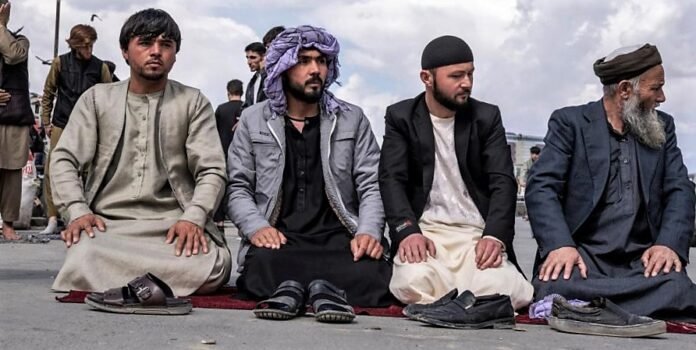Amid the Taliban’s imposition of stringent regulations in Afghanistan, the United Nations (UN) faces a dilemma in the aftermath of the group’s recent announcement that Afghan women employed by the organisation would be prohibited from attending work without any further explanation. As the UN reviews its operations in Afghanistan, the perplexing and bursty question arises: what will be the consequences of this unprecedented violation of women’s rights on aid delivery and Afghan society?
Taliban Restrictions on Women: A Barrier to Progress
The Taliban’s restrictions on women in Afghanistan have been a significant barrier to the country’s progress towards gender equality. Girls have been banned from attending school after the age of 11 or 12, and most Afghan women are now excluded from participating in public life or work. In December, the Taliban banned Afghan women from working for local and non-governmental organisations. However, the recent decision to ban women from working for the UN mission marks a new level of restriction.
UN Response: Condemnation and Operational Review
The UN has strongly condemned the Taliban’s decision, describing it as an extension of the group’s unacceptable restrictions on women. The UN cannot accept this decision and is now reviewing its presence in Afghanistan, leading to perplexity around the future of the UN’s role in the country. The head of mission in Afghanistan, Roza Otunbayeva, has initiated an operational review period that will last until May 5. During this time, the UN will carry out necessary consultations, adjustments, and contingency planning for all possible outcomes.
Consequences of the Ban: Hinderance to Aid Delivery and Discrimination against Women
The ban on Afghan women working for the UN and non-governmental organisations has severely impacted the delivery of aid in Afghanistan. Aid agencies have been delivering education, healthcare, and food to Afghans in the aftermath of the Taliban’s takeover and the resulting economic collapse. The UN warns that the decision to ban female staff discriminates against women and hinders Afghans’ access to life-saving assistance and services. The question of how this will impact aid delivery in the region remains a perplexing issue.
UN’s Warning: Taliban’s Responsibility
The UN has warned that any negative consequences arising from this situation will be the Taliban’s responsibility. The group is attempting to coerce the UN into choosing between assisting Afghans and complying with its norms and principles, leading to further perplexity around the future of the country. The bursty question of how the Taliban’s decision will impact women’s rights and aid delivery in Afghanistan remains unanswered.
Women’s Rights in Afghanistan: A Complex Issue
The ban on Afghan women working for the UN and non-governmental organisations highlights the complex issue of women’s rights in Afghanistan. While the Taliban claims to be promoting traditional Islamic values, their restrictions on women have been criticized globally. The UN has emphasized the importance of women’s participation in all aspects of society and the impact that the Taliban’s policies have on the progress of the country.
The Future of Aid Delivery in Afghanistan
The ban on female staff working for the UN and non-governmental organisations has raised concerns about the future of aid delivery in Afghanistan. With women making up a significant portion of aid workers in the country, the Taliban’s decision has severely impacted the delivery of essential services. The UN’s operational review period will play a crucial role in determining the future of the UN’s presence in Afghanistan and its ability to provide aid to those who need it most.
Conclusion
The Taliban’s recent ban on female staff working for the UN mission in Afghanistan has raised concerns about the future of women’s rights and aid delivery in the country. The UN’s operational review period will provide clarity on the future of the organisation’s presence in Afghanistan and its ability to provide aid to those in need. With the situation in Afghanistan remaining uncertain, the global community must continue to monitor the developments and provide support to the Afghan people.











